A few months ago I could not wrap my head around why I was so thirsty. I’d wake up in the morning and guzzle a tall glass of water. I’d get to work, and drain my 32 oz. Nalgene bottle at least 2-3 times, before going home and drinking even MORE water. With all the water I was drinking, you’d think I’d be spending all my time in the bathroom, but the crazy thing was that I wasn’t! What was going on?
I decided to ask one of my colleagues, who is a Traditional Chinese Medicine Practitioner, if she had any insights. She made me stick out my tongue, and then asked me a series of questions about what had been going on in my life recently. I casually mentioned that a few weeks ago I had donated blood, and that made her eyebrows raise a little. She questioned me more on the matter and all of a sudden the light bulb went on – what is blood primarily comprised of?? WATER duh! I had donated blood probably twice in the last 75 days or so, and really hadn’t done much in the way of providing my body with extra nutrients to restore its blood levels. So through my thirst mechanism, my body was literally screaming “rehydrate, you need more water because you need blood!”
Water is essential to living a thriving life. This is probably why on day-one of my Nutrition training the very first thing we learned about was water. But how exactly does water benefit our bodies?
6 Benefits of Drinking Water
Feeds the body nutrients – there are important nutrients the body needs that are water soluble (vitamin C and the B vitamins), and therefore require water for proper absorption during the digestive process.
Maintains the balance of fluids in the body – as illustrated in my story above, water is important for the proper creation and flow of bodily fluids – and this isn’t just blood, but sweat, tears, semen, all the fun bodily juices you can think of.
It is detoxifying – by drinking adequate water your body will have what it needs to keep you pooping, peeing and sweating – all important ways that your body moves toxins out of the body.
Build Muscles – water helps move oxygen to your body’s cells, including the cells in your muscles. This energizes the muscles and prevents fatigue, giving the body the means to exercise, and build muscle mass, thus making the body stronger.
It makes you smarter – have you ever had a headache that has been magically cured by water? In the same way that water moves oxygen to the cells in your muscles, it also moves it to the brain. Goodbye brain fog!
Makes your skin glow – dehydrated skin can appear dry, rough, and older than you may like. By drinking enough water, the skin stays hydrated, and can maintain a healthy glow. Some say, it may even soften wrinkles!
Signs You’re Not Getting Enough Water
Everyone’s water requirements are going to be different. Your age, activity level, diet, and the climate of where you live are all factors that will influence your hydration needs.
Like in my story above, thirst may be your biggest indicator that your body requires more water. However, some people’s thirst mechanism may be impaired, or they may have other factors or stresses in their life that distract them from feeling thirsty.
Another way to track if your body requires more water is based on your urine output. If your urine is a light yellow, and odor free, this is generally a good sign that you are well hydrated. If your urine is dark yellow, and has a strong pee-smell, this is a sign that your urine is quite concentrated, due to not enough water in the body to carry it out. Dry skin, constipation, and lethargy are also signs your body is giving you that it needs more water.
Is water just water?
It’s important to understand that not all water is created equal. The kinds of water you have access to may vary based on where you live, and your disposable income. In Vancouver, BC, I am extremely blessed to be able to walk into my bathroom or kitchen, turn on a tap and out flows this clean, drinkable, nourishing water.
But does that mean tap water is the best option? It’s free and readily available – but what about from a nutritional standpoint? Let’s take a look at some of the differences between the kinds of water that is available:
Tap water – Some may consider tap water “processed”, because well, it is. It goes through extensive filtration, and then has chemicals and additives added to it to clean it up even further. While these chemicals may be within safe levels for consumption, they are still unnatural substances that are being consumed by the body. Also, tap water typically comes from ground water or surface reservoirs, and while this means it may contain important minerals from the earth that the body needs, it can also mean that the water can potentially be exposed to environmental pollutants. These pollutants may not always be cleared up by the filtration/ “purification” process. (Learn more about Vancouver’s drinking water here.)
Well water – Like some tap water, well water comes from the ground. The mineral content of this water will vary depending on the region and can vary from what is deemed “soft” to “hard” water, with hard water being richer in minerals. Additionally, well water is also at risk of exposure to environmental pollutants the difference being, that well water doesn’t go through a large, municipality-funded treatment process to ensure that it is safe for consumption. Therefore, it’s recommended that well water be tested frequently to ensure its safety.
Spring water – This, again, is water that flows from underground, or in rocks. Mineral content of spring water will depend on the earth it is coming from. This is water in a very natural form. Now, just because I said natural, doesn’t mean that it’s the healthiest! Again, it’s important to have spring water tested regularly to ensure that it is not being exposed to environmental toxins such as fertilizers. Many people feel that spring water is a refreshing way to get trace minerals without altering the taste of the water. Visit findaspring.com to locate a natural spring near you, and to read people’s comments on its quality and safety.
Mineral Water – can either be a natural found water, or manufactured, and is typically effervescent. Bottled mineral water often has CO2 added back to it to maintain its “sparkling” quality, as much of this gas is lost on its trip from the ground to the bottle.
Purified/Filtered water – Legally, in order to call water “pure” 99.75% of its incoming bacteria must be removed. One may either buy purified water, or use own filtering systems at home to purify tap water. The two main ways to purify water at home would be either using an activated carbon filter, or a reverse osmosis system.
So how much water should you be drinking?
Like mentioned above, how much water a person needs will vary by person. The common messaging that we hear from health professionals and the media is that we should be getting eight glasses a day, however, there isn’t any scientific evidence to actually support this claim. It’s also important to consider that we take in water in the foods we consume as well. Eating more soups, fruits and veggies that contain a lot of water will reduce our need to try and drink those 8 glasses a day. Like mentioned above let your thirst be your biggest indicator and then adjust accordingly based on your age, climate and activity level.
My best tip for increasing your water intake
Invest in a drinking vessel that you will want to drink from. This can be as simple as an upcycled mason jar, or a glass that fits nicely in your hand. I personally treated myself to a brand new S’well water bottle. 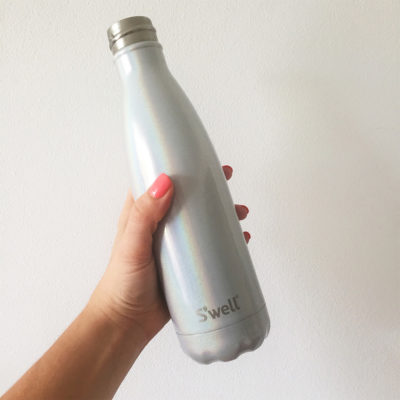 They can be an investment, but I love mine and do not regret the purchase. It legitimately stands up to its claims and keeps my water nice and chilled all day long. I’m also often running around, hauling my laptop with me, so I wanted a water bottle that I could confidently chuck in my bag next to my laptop and not worry about leakage or condensation.
They can be an investment, but I love mine and do not regret the purchase. It legitimately stands up to its claims and keeps my water nice and chilled all day long. I’m also often running around, hauling my laptop with me, so I wanted a water bottle that I could confidently chuck in my bag next to my laptop and not worry about leakage or condensation.
Once you have a drinking vessel, determine how large it is and how much water it will hold. This will help you determine how many of your chosen glasses, jars, or bottles, you’ll need to consume in a day to stay hydrated. My S’well bottle is a 500mL bottle, and I’m currently aiming to drink about 2 litres of water per day. So I know I have to fill and drink my water bottle 4 times to reach my goal.
Lastly, if you’re like me and will likely lose track of how much you’re drinking, a trick I do is put 4 elastic bands around my water bottle. Then every time I drink a full bottle, I move one of the elastic bands from the bottom of the bottle to the top. Once all my elastic bands are at the top, I’ve reached my daily water goal!
What is your favourite way to rehydrate? Do you find getting enough water challenging throughout your day?


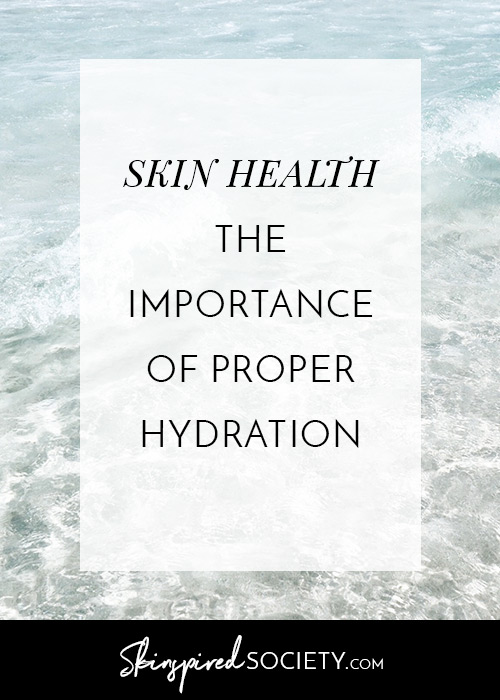

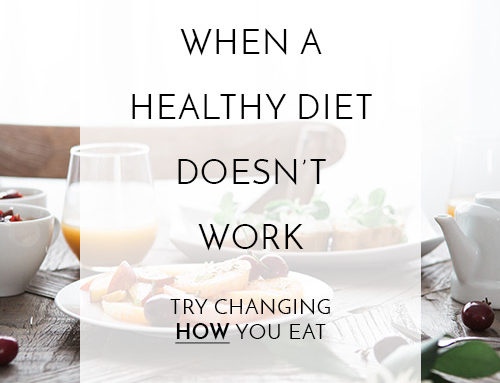

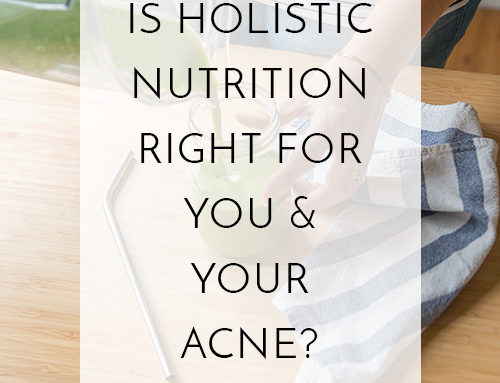

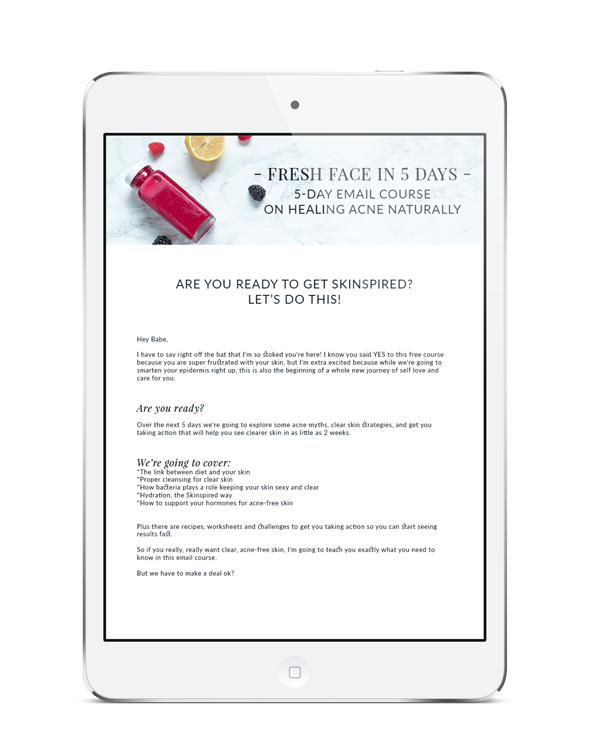
I am so proud of you. I especially like your recipes. This week I am going to try the ginger squash soup, cause I love soup. I also want to try the pumpkin muffins.
I’ll give you my feedback if you like.